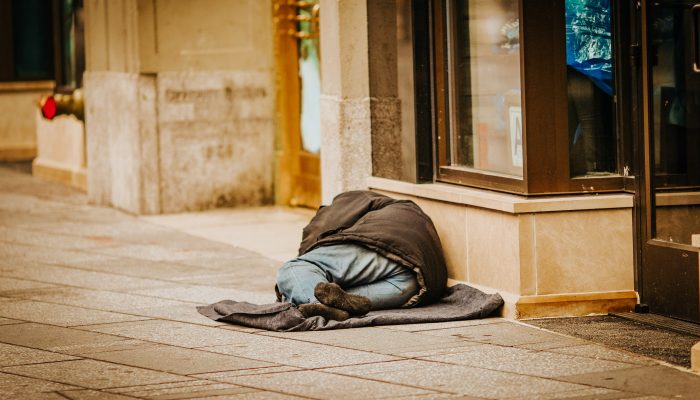San Francisco and Sioux Falls might seem to share little beyond an abbreviation, but the cities wrestle with a common problem: homelessness. In the Bay Area, a persistently high unhoused population has long been a municipal crisis. But shelters are near capacity in South Dakota’s largest city, too, and the growing number of unhoused people on the streets has emerged as an issue in the current mayoral race.
Now the two regions are set to test a new approach to controlling homelessness by targeting the link between housing instability and incarceration. An initiative called the Just Home Project, devised and funded by the MacArthur Foundation, and coordinated by the Urban Institute, will provide resources and technical assistance to four jurisdictions across the U.S. that struggle with different variations on the jail-to-homelessness cycle: South Carolina’s Charleston County, Oklahoma’s Tulsa County, South Dakota’s Minnehaha County, and the city and county of San Francisco. It’s seeded by a $5 million grant to support counties as they plan how to tackle their unique crises; another $15 million in impact investment from the MacArthur Foundation will go towards implementation, and acquiring or developing housing units in these jurisdictions.
Compared to the scale of the affordability crisis, the size of the funding is modest. San Francisco alone earmarked about a billion dollars to spend on homelessness in its last two-year budget cycle, and by some estimates it took more than $450,000 dollars to build one unit of affordable housing in California in 2016. But while the funds can be used to create new housing, the broader goal is to get counties to address the specific barriers that recently incarcerated individuals face when trying to access existing housing.
“Homelessness, housing insecurity and participation in the criminal justice system are just simply deeply intertwined, in part because of the criminalization of homelessness itself,” said Kelly Walsh, a principal policy associate at the Urban Institute’s Justice Policy Center and Research to Action Lab. According to a study by the California Policy Lab, unhoused people they surveyed in Los Angeles were 10 times more likely to come into contact with police than housed people. Laws banning street camping are working their way through several U.S. statehouses, which could target more unsheltered residents congregating in tent encampments with criminal charges.
Read the full story on Bloomberg.

